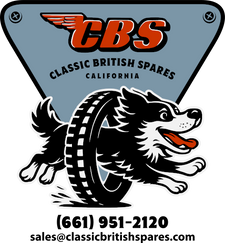
Service Bulletin: Plug Oilways On Service Crankcase Assembly
Triumph Crankcase Oil Way Plug
Original Triumph service bulletin #293. (Click on image to enlarge)
Early Triumph 650 unit twins from 1963 through 1965 (prior to DU24875) did not feature the oil way passage from the engine case through the cylinder barrel to lubricate the exhaust tappets and the cam. For those who have a set of later 1966-1972 replacement cases and you are planning on using the early components from an earlier engine from 1963-1965, please read this post first before assembling your engine as this is extremely important. If over looked, you could face some serious base gasket leaks.

Starting from engine number DU24875 (1966) Triumph added a feature in which the case its self was drilled and machined with a channel which fed oil through the base of the cylinder barrel directly to the exhaust tappets. This redesign is called "timed tappets". The new design worked quite well preventing premature camshaft lobe and tappet wear.

The photo above shows the dowel that engine cases from DU24875 have. The dowel slips inside the bottom of the cylinder barrel (on the case) and feeds oil through the passage. The dowel must be removed and replaced with part number 70-7038 / E7038 plug if the case will be used with an earlier cylinder barrel which does not feature the internal drilling for the oil passage. If you use a later case with an early cylinder barrel and you do not plug the oil passage oil, you will have an extreme base gasket leak.


Paul Reeves
I have a 66 t120r w/ DU 34525 serial #. It has the hole for the oil feed but no dowel. What would you do? I still have to buy jugs and head.(funky slang) basically all I have is lower half. To plug or not to plug….that is the question.